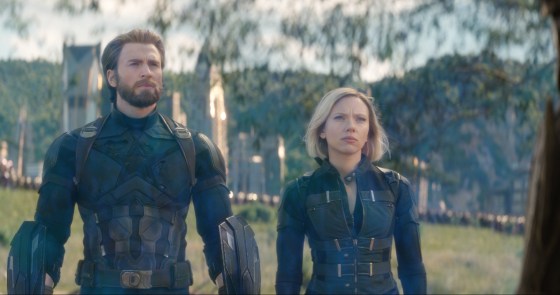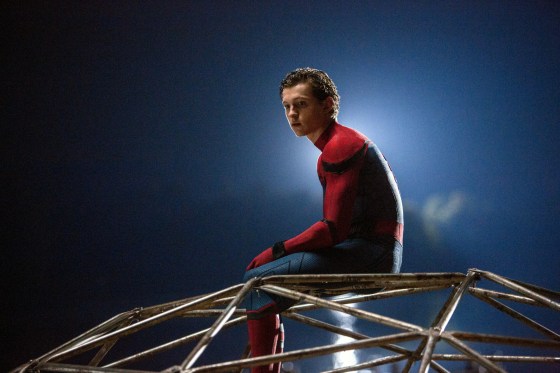New top story from Time: Why Scarlett Johansson Is Suing Disney Over Black Widow
The Black Widow has one more fight left in her. This time, though, it’s not with the Red Room but with the House of Mouse.
Scarlett Johansson, who recently retired her role as the superhero in her final Marvel movie Black Widow, filed a lawsuit against Disney on Thursday over breach of contract. The star alleges that the studio broke its agreement with her when they decided to release the Marvel Cinematic Universe film simultaneously in theaters and on their streaming service, Disney+. She says in court documents that the deal guaranteed an exclusive theatrical release and that her salary for the film was largely tied to box office performance. By releasing the movie on streaming at the same time, Johansson believes Disney cost her an estimated $50 million, according to the Wall Street Journal. (Disney did not respond to request for comment.)
[time-brightcove not-tgx=”true”]
The suit will likely have a major impact on whether studios decide to release major films already in the can to streaming services as the pandemic threatens to surge for a fourth wave in the U.S. and theater attendance continues to be diminished. Many stars’ contracts tie their income directly to box office performance, and releasing movies on VOD can cost them major earnings. Johansson is far from the first actor to express concern about how the changing landscape would impact their pay: After a reportedly tense negotiation, Warner Bros. paid Wonder Woman 1984 star Gal Gadot and director Patty Jenkins $10 million each in the wake of the studio’s decision to shift the film from theatrical release to HBO Max.
While we may not shed a tear for the multi-millionaires losing out on a major payday, actors with less power and leverage, as well as professionals in other roles in the film industry, will be impacted by these deals too. Here’s everything you need to know about why Johansson is suing, how the history of Disney’s treatment of Johansson colors the conflict and how the suit could affect the future of Hollywood.
Johansson is suing because stars’ contracts depend on box office

Many big stars receive two checks: one guaranteed amount upfront, the other dependent on whether the film makes money, specifically from box office returns. How those contracts are negotiated may change significantly as the pandemic has shifted studios away from prioritizing box office profits and toward a greater focus on boosting streaming subscriptions.
Most studios either have launched a streaming outlet in the last couple years—Disney has Disney+, Warner Bros., HBO Max—or cut a deal with an already-existing service to release their movies on streaming, as MGM recently did with Amazon. With theaters closed during the COVID-19 pandemic, many studios decided to release big-budget films that would traditionally top the box office straight to these streaming services.
Most notably, Warner Bros. announced it would drop 17 movies—its entire slate for 2021 including The Suicide Squad, Dune and The Matrix 4—onto HBO Max at the same time that they released the films in movie theaters. Disney did the same for Mulan, Cruella and, now, Black Widow, which Marvel fans could stream at home for $30 on Disney+ Premiere Access the same day it was released in theaters.
The business interests of the studios can be murky. For instance, Warner Bros. decided to release all of its movies to HBO Max back when both WarnerMedia and HBO Max were operated by AT&T (who has since spun off the service). Even though simultaneously releasing movies on streaming and in theaters would no doubt undercut their box office, it’s possible that AT&T cared more about number of streams considering that they’re a phone and internet service provider.
Even in more straightforward cases, like Disney Studios owning Disney+, the C-Suite might believe that releasing Black Widow on streaming would entice enough subscribers to Disney+ in order to justify potential losses at the box office.
Disney rarely releases numbers for their streaming service but did report that Black Widow grossed $158 million at the box office and earned another $60 million from at-home purchases of the movie on Disney+ Premiere Access. The news bumped up Disney’s stock the following Monday. But then Black Widow floundered at the box office the following week, leading theater owners to blast Disney for its decision, arguing that the at-home release cannibalized Black Widow’s box office potential and people opted to watch at home rather than at the cinema.
The release changes have huge impacts on actors, directors, writers and producers, many of whom negotiate their contracts such that their income is tied to the financial success of the film at the box office. Johansson writes in her complaint that her team reached out to the studio in 2019 when they learned it was considering a dual-release model.
In an email included in court filings, Marvel Chief Counsel Dave Galluzzi said they would release the film in the traditional theatrical model and, if plans should change, “we would need to discuss this with you and come to an understanding as the deal is based on a series of (very large) box office bonuses.” Johansson claims her team did indeed seek to renegotiate her contract after they learned Disney planned to release Black Widow to both streaming and in theaters at the same time and that Disney didn’t respond.
“This will surely not be the last case where Hollywood talent stands up to Disney and makes it clear that, whatever the company may pretend, it has a legal obligation to honor its contracts,” John Berlinski, an attorney who represents Johansson, told the Wall Street Journal.
The move to streaming can cost stars big money

Scarlett Johansson isn’t the first big star to push back against studios’ efforts to send the biggest-budget movies straight to streaming. The New York Times reported that while Gadot and Jenkins were able to negotiate $10 million payouts with Warner Bros. before the switch to streaming for Wonder Woman 1984 was even announced, other creatives weren’t as fortunate. Few in Hollywood were given a heads-up about the switch in strategy and representatives for major stars like Margot Robbie, Will Smith, Keanu Reeves and Angelina Jolie were reportedly left scrambling to strike new deals with the studio.
Warner Bros. renegotiated many of its talent contracts, which would have been similar to the one Johansson has with Disney, because of its move to streaming. They ultimately paid more than $200 million to actors and creatives as part of their amended agreements.
And rumors are swirling in Hollywood that other A-listers are not happy that their big pictures are being released on the small screen.
As it stands, actors take a gamble by betting on a film’s success. If a movie flops, they can keep their upfront check but won’t get a box office bonus check. Part of why Johansson’s suit and the negotiations over streaming are so complicated is because it’s impossible to know how much money the movie would have made in an alternate universe.
The character suffered years of sexism, and this conflict ends her reign on a sour note

Johansson was the first and, for a long time, the only main female character in the successful Marvel movies. She appeared in nine movies in the franchise and was forced to wait 11 years to get her own solo film—and when Black Widow did arrive, it was a prequel set after the character died in 2019’s Avengers: Endgame. She seemingly has no future in the MCU beyond this point.
Black Widow was introduced to the MCU as “potentially a very expensive sexual harassment lawsuit” in Iron Man 2 and was relegated to sidekick, love interest and object to be ogled throughout the early Marvel films. The transgressions were so egregious that director Cate Shortland told TIME she felt a need to address the history of sexism directly at several points in the dialogue for the Black Widow movie.
Currently, Disney does not plan to release the three other Marvel Studios movies slated for this year—Shang-Chi and the Legend of the Ten Rings, The Eternals and Spider-Man: Far From Home—immediately on Disney+. Disney’s decision to release Black Widow simultaneously to Disney+ and theaters rather than holding off on streaming until later in the year could be read as a final indignity for a character who suffered through disproportionately bad treatment and sexism throughout her decade-long run in the Marvel Cinematic Universe.
Read More: Black Widow Is a Showcase for Florence Pugh and Scarlett Johansson First and a Marvel Superhero Movie Second
The lawsuit may help determine whether movies are released straight to streaming in the future

At the same time, Johansson is one of the studio’s biggest stars. As some journalists have pointed out on Twitter, if Disney is able to potentially (allegedly) breach the contract of an A-lister like Johansson, it’s likely they would do it without much fuss for less famous actors and creators.
Whether Johansson, already a superstar, is motivated by altruism or the simple belief that she was deprived of the earnings she deserved is not for us to say. But there’s no doubt that the fate of the suit will set a precedent for other actors with less power going forward.


No comments